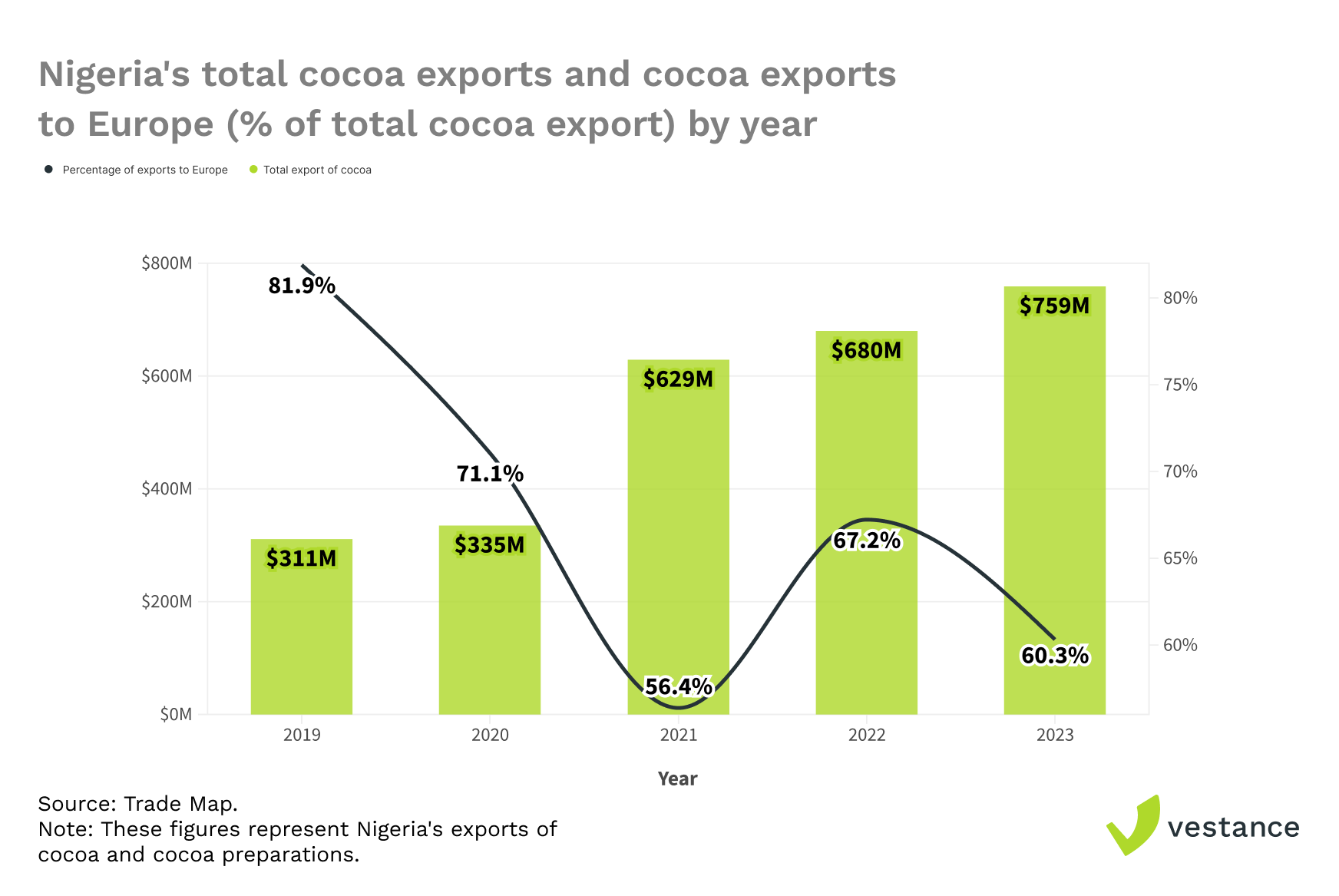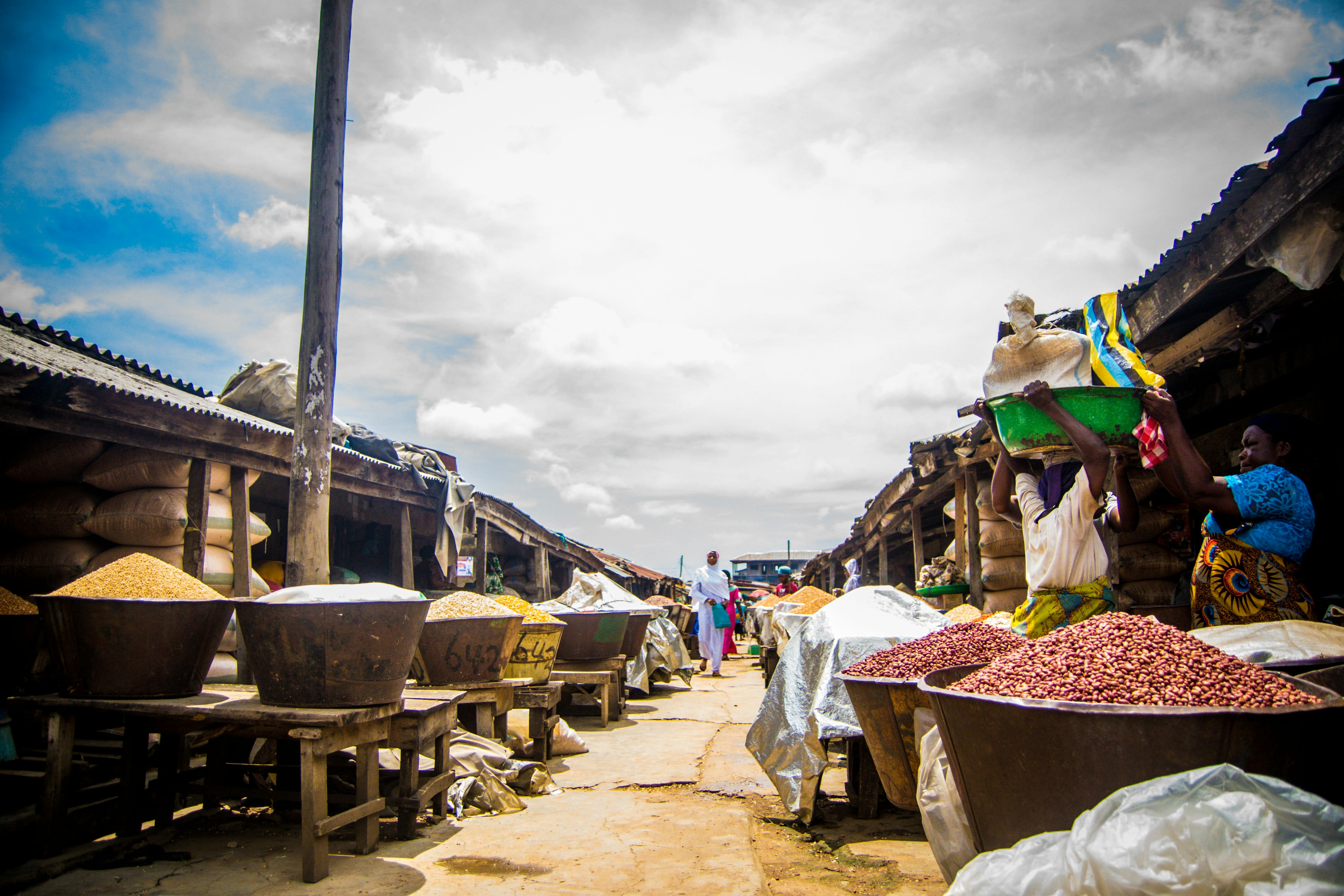What is EUDR?
The European Union Deforestation Regulation (EUDR) is a regulation aimed at ensuring that the products that EU citizens consume do not contribute to deforestation or forest degradation worldwide. The rule mandates that only products that are legal in the country of production and are not linked to deforestation and forest degradation after December 31, 2020, can be placed on the EU market or exported from Europe. Commodities covered by this rule are palm oil, cattle, soybeans, coffee, rubber, cocoa, wood, and products derived from the listed commodities. The regulation entered into force on June 29, 2023, with an implementation period through December 31, 2024, after which it will take full effect.
What does it mean for exports into the EU?
The EU deforestation regulation requires that before any of the affected products are placed on the EU markets, the companies placing them must ensure that the products:
- Are deforestation-free
- Have been produced in accordance with the relevant legislation of the country of production and
- Are covered by a due diligence statement
The due diligence statement is provided by the companies placing the products on the market. It includes adequately conclusive and verifiable information that the product fulfils requirements 1 and 2 above and information about the geolocation of all plots of lands where the relevant commodities that the product contains, or has been made using, were produced.
The above requirements also apply to products exported from the EU.
Reactions to the Regulation
The rule, while laudable in its aim to combat deforestation and forest degradation, has elicited reactions globally, particularly from nations that produce commodities targeted by the regulation.
17 producer countries, including Nigeria, Ghana, and Cote d'Ivoire, have jointly expressed their reservations about the law. This group of producer countries highlighted the potential adverse economic consequences, particularly for smallholder farmers, who may be disproportionately affected. They argue that the legislation failed to account for the local circumstances and capacities of developing producer nations, as well as their ongoing efforts to combat deforestation. The group urged the EU to foster more inclusive dialogue and effective cooperation with producing countries. Additionally, they called for amendments to the legislation that would better accommodate the interests of smallholder farmers in its implementation.
Given the numerous complaints and calls for adjustment and postponement of the regulation from both within and outside the EU, it is conceivable that the European Commission may reconsider its position in the coming weeks and potentially delay the implementation date.
For example, the current market dynamics in the cocoa industry present a solid case for reconsideration by the EU. With high prices of cocoa and supply chains that are already under strain, it would be inadvisable to carry on with the proposed date as this will exacerbate the imbalance between supply and demand, as companies would likely prioritize sourcing from regions fully compliant with the EUDR, potentially leading to even higher costs.
Impact on Nigeria’s Cocoa Industry
Cocoa stands as one of Nigeria's primary exports, with Europe serving as the predominant market. Between 2019 and 2023, the country exported an average of $543 million in cocoa (cocoa and cocoa preparations), and exports to Europe accounted for more than 55% of the total exports of the commodity for each year. With plans to increase production coupled with the current high prices of cocoa, the country faces a potentially significant hit to its foreign revenue if it fails to comply with the EU deforestation regulations.

Nigeria is dedicated to aligning the cocoa industry with the EUDR requirements and the country’s National Cocoa Management Committee (NCMC) is at the forefront of it. The NCMC has called for an emergency in the sector, emphasizing the need to ensure the sustainability of Nigeria’s cocoa industry in the face of these regulations. They highlighted that the EU is the destination for most of Nigeria’s cocoa exports, making continued market access to the region critical.
Stay up-to-date!
Recommendations
In response to the challenges faced by the country's cocoa industry by the EUDR, the following recommendations are proposed to facilitate the country's compliance and ensure the continuity of growth in the sector:
- Embrace and promote sustainable farming practices among cocoa farmers to mitigate the risk of deforestation and forest degradation. An example of such a practice that could facilitate compliance with the EUDR is agroforestry. By implementing agroforestry systems, there is less need to clear new land for planting, and it also helps preserve existing forests.
- The government should emulate the approach of fellow cocoa producers, Cote d’Ivoire and Ghana, by building a comprehensive national database of cocoa producers and mapping cocoa farms in the country to enhance traceability throughout the supply chain. Furthermore, the government should consider partnering with relevant bodies and organisations to develop a standard traceability system that would be beneficial to farmers, especially smallholders, enabling them to maintain accurate records of their farm locations and agricultural practices.
- In line with the recommendations of the NCMC, the Nigerian government should proactively engage with the EU to conduct a comprehensive preparedness assessment, as was done for Ghana, Cote d'Ivoire, and Cameroon. This assessment would help identify strengths and gaps in the present system of the Nigerian cocoa industry and help guide stakeholders in aligning the industry with EUDR standards.
With the country’s aim to increase its cocoa production from 340,000 metric tonnes recorded in 2022 to 500,000 metric tonnes in 2025, compliance with these regulations is crucial to maintain market access and capitalize on export opportunities. The current high cocoa prices, driven by reduced production in Cote d’Ivoire and Ghana (the two leading producers), present a potential windfall for Nigeria if it can meet regulatory requirements. Therefore, it is imperative that the Nigerian government prioritizes the implementation of these plans and recommendations to help sustain its cocoa industry and maximize its economic potential in the face of changing global regulations and market dynamics.
What alternatives does the Cocoa Industry have?
Given the short time left for compliance and the race against the clock, a critical question arises: What alternatives are there for the cocoa industry if the industry fails to meet the deadline and the EU doesn’t extend the deadline? This scenario, which is best avoided, presents a serious challenge because the EU is the biggest market for cocoa and cocoa products. In the event that it happens, we look at other alternatives that the government and stakeholders in the industry could explore to mitigate potential losses:
- The country could expand and increase its exports to regions that are less affected by EU regulations. For example, Nigeria is the leading exporter of cocoa to Indonesia, and Indonesia has minimal cocoa re-exports to the EU. The country can capitalize on its existing cocoa trade relationship with Indonesia and also strengthen its exports to other similar regions, like Indonesia, with high cocoa demand and low re-export rates to the EU, to penetrate new markets.

- Another alternative to explore is prioritising value addition through processing our cocoa beans into finished cocoa products that can be sold directly within the country and to other consumers in non-EU markets, thereby reducing dependence on raw bean exports and mitigating re-export concerns.
- Ramp up production of cocoa in areas of the country that satisfy the EUDR requirements and increase exports from these areas to mitigate potential losses from non-compliant zones.
- While exploring the alternatives above, the country should continue to intensify its efforts to achieve full EUDR requirements to regain full market access to the EU market.
About Vestance
At Vestance, our mission is to be the foremost catalyst of sustainable agricultural transformation in Africa by empowering agri-businesses and governments with high-quality and data-driven insights, knowledge, innovation, and resources.
References
- Adegwu, J. (2024, May). EUDR: National Committee Seeks Emergency In Cocoa Sector. Leadership. Retrieved July 2024
- Aghogho, U. (2024, July). FG targets 500,000 metric tonnes in cocoa production next year. Nairametrics. Retrieved July 2024
- Ambassadors of producer countries. (2023, September). Trading Partners Joint Letter on EUDR. Retrieved July 2024
- European Commission. (2023, June). Regulation (EU) 2023/1115 of the European Parliament and of the Council. Retrieved July 2024
- European Commission. Regulation on Deforestation-free products. Retrieved July 2024
- The Observatory of Economic Complexity. Cocoa Beans in Nigeria. Retrieved July 2024
- Trade Map. Bilateral trade between Nigeria and Europe. Product: 18 Cocoa and cocoa preparations. Retrieved July 2024
- Trade Map. (n.d.). Bilateral trade between Indonesia and Europe. Product: 18 Cocoa and cocoa preparations. Retrieved July 2024



